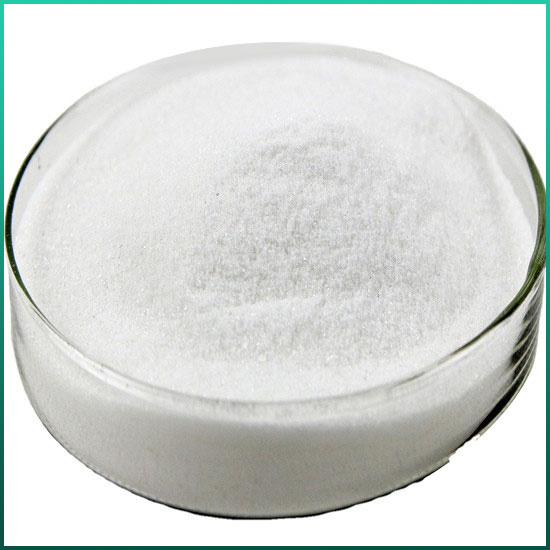Uses of Chondroitin Sulfate
2024-05-29
Chondroitin sulfate is a naturally occurring compound found in the connective tissues of animals, including humans. It is a type of glycosaminoglycan (GAG), which is a long chain of sugar molecules that are an essential component of cartilage, tendons, ligaments, and other structural tissues in the body. Chondroitin sulfate is often used as a dietary supplement to support joint health and alleviate symptoms of osteoarthritis. Here's an overview of chondroitin sulfate, including its sources, benefits, and uses:
Sources of Chondroitin Sulfate
1. Animal Cartilage: Chondroitin sulfate is primarily extracted from animal sources, such as bovine (cow) cartilage, shark cartilage, and pork cartilage. These animal tissues are rich in chondroitin sulfate, which is isolated and purified for use in dietary supplements.
2. Synthetic Production: Chondroitin sulfate can also be produced synthetically through chemical processes in laboratories. Synthetic chondroitin sulfate has a similar structure and properties to the natural form and is used in some dietary supplements and pharmaceutical formulations.
Benefits of Chondroitin Sulfate
1. Joint Health: Chondroitin sulfate is a key component of cartilage, which cushions and protects the joints from wear and tear. Supplementing with chondroitin sulfate may help support joint health and reduce pain, stiffness, and inflammation associated with conditions such as osteoarthritis.
2. Cartilage Repair: Chondroitin sulfate plays a role in maintaining the structure and integrity of cartilage tissue. By providing additional chondroitin sulfate through supplementation, it may support the repair and regeneration of damaged cartilage in arthritic joints.
3. Anti-Inflammatory Properties: Chondroitin sulfate has anti-inflammatory properties that may help reduce inflammation and swelling in the joints, improving mobility and function in individuals with osteoarthritis or other inflammatory joint conditions.
4. Improved Joint Lubrication: Chondroitin sulfate helps attract and retain water molecules in cartilage, providing lubrication and shock absorption in the joints. This lubricating effect may help reduce friction and improve joint mobility and flexibility.
5. Potential Benefits for Bone Health: Some studies suggest that chondroitin sulfate may have beneficial effects on bone health by promoting the synthesis of collagen and other proteins essential for bone structure and strength.
Uses of Chondroitin Sulfate
1. Dietary Supplements: Chondroitin sulfate is commonly used as an ingredient in dietary supplements designed to support joint health and relieve symptoms of osteoarthritis. It is often combined with glucosamine, another natural compound found in cartilage, for enhanced efficacy.
2. Topical Preparations: Chondroitin sulfate may be included in topical creams, gels, or ointments for external application to the skin over affected joints. These topical formulations may provide localized relief from pain, inflammation, and stiffness in arthritic joints.
3. Pharmaceutical Formulations: Chondroitin sulfate is used as an active ingredient in some pharmaceutical formulations, including oral tablets, capsules, and injectable solutions, for the treatment of osteoarthritis and related joint disorders.
4. Veterinary Medicine: Chondroitin sulfate is also used in veterinary medicine to support joint health and manage osteoarthritis in dogs, cats, and other animals. It is available in various forms, including dietary supplements and veterinary pharmaceuticals.
Safety and Considerations
1. Generally Recognized as Safe (GRAS): Chondroitin sulfate is considered safe for most people when taken orally or applied topically in appropriate doses. It has been widely studied for its safety and efficacy in clinical trials and observational studies.
2. Potential Side Effects: Mild side effects such as gastrointestinal upset, diarrhea, nausea, and headache may occur in some individuals taking chondroitin sulfate supplements. These side effects are usually temporary and resolve with continued use or dosage adjustments.
3. Drug Interactions: Chondroitin sulfate may interact with certain medications, including blood-thinning medications (anticoagulants) such as warfarin and aspirin. It is important to consult with a healthcare professional before taking chondroitin sulfate supplements, especially if you are taking prescription medications or have underlying health conditions.
4. Quality and Purity: When choosing chondroitin sulfate supplements, look for products that are manufactured by reputable brands and undergo third-party testing for quality, purity, and potency. Select supplements that contain chondroitin sulfate derived from reliable and sustainable sources.
Conclusion
Chondroitin sulfate is a natural compound found in the connective tissues of animals, with potential benefits for joint health and osteoarthritis management. As a dietary supplement, chondroitin sulfate is widely used to support joint function, reduce pain and inflammation, and promote cartilage repair and regeneration. When used appropriately and in conjunction with other lifestyle interventions, chondroitin sulfate supplements may help improve joint mobility, flexibility, and overall quality of life for individuals with osteoarthritis or other joint-related conditions. However, it is essential to consult with a healthcare professional before starting any new supplement regimen, especially if you have underlying health concerns or are taking medications.



